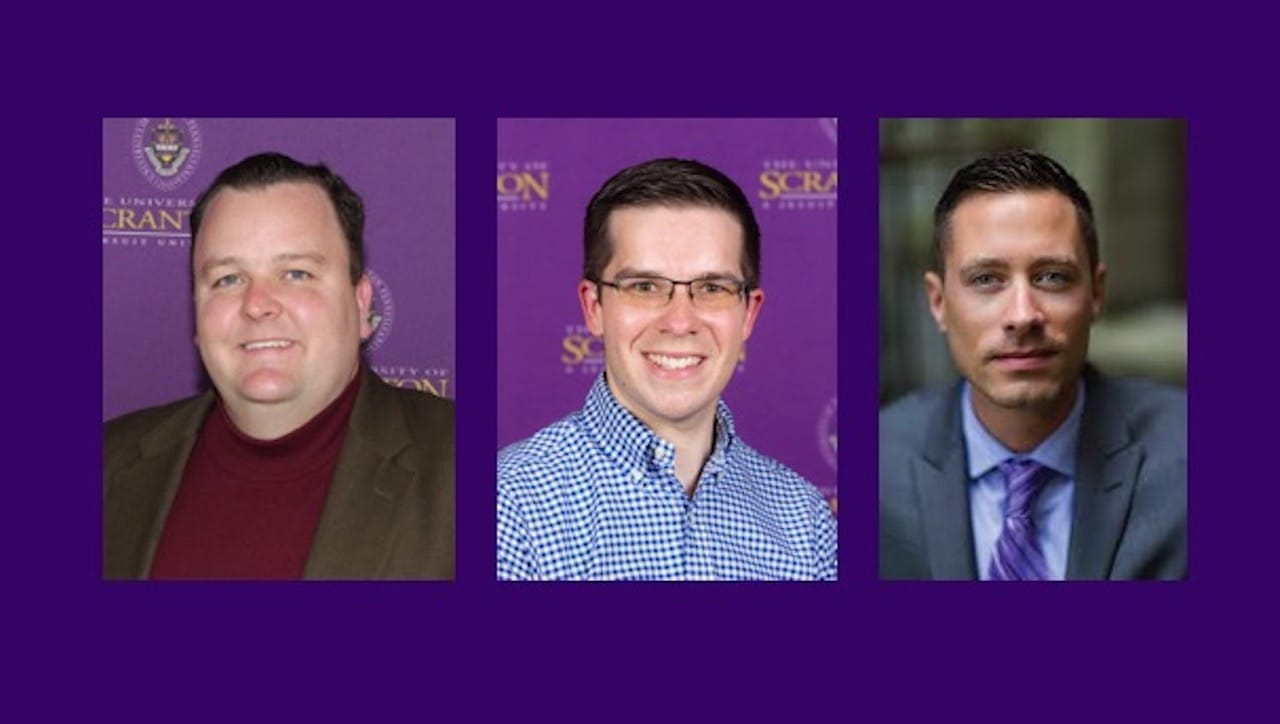Schemel Forum Courses Set for In-Person and Zoom

During the spring semester, University of Scranton professors will share their passion and expertise at three different Schemel Forum courses that run in six weekly sessions from 6 to 7:15 p.m. in-person at the University’s Weinberg Memorial Library, or remotely via a zoom link.
Sean Brennan, Ph.D., professor of history at the University, will present “James Bond and the Cold War” on the following Tuesdays: February 1, 8, 15 and 22; and March 1 and 8.
One of the most famous fictional characters to come out of the British Isles, Ian Fleming’s superspy James Bond has been a constant presence in books, films, video games and merchandise for almost seventy years. This course will put Bond back into the context of the Cold War from the 1950s to the 1980s. It will begin with an examination of Fleming’s novels and how they connect to his own background in espionage and then move to the films from the Connery to Dalton eras, ranging from “Dr. No” to “The Living Daylights.”
Christopher E. Fremaux, Ph.D., assistant professor of philosophy at the University, will present “Moral Citizenship: The Enlightenment Vision of the Ethical Community” on the following Thursdays: February 3, 10, 17 and 24; and March 3 and 10.
“Among the plethora of issues that mark our contemporary political discourse is a growing skepticism of the practicality, and perhaps even the value, of democratic institutions,” said Dr. Fremaux. “Helping to fuel this skepticism is disagreement over a perennial issue in political philosophy: the relation between the individual and the community.” The course will examine this topic by exploring a vision of society first articulated in the Enlightenment: the vision of an ethical community, i.e., a political community structured according to moral principles
Dr. Fremaux added, “We will focus upon the ideas of four philosophers in particular: Jean-Jacques Rousseau, Immanuel Kant, Johann Fichte and Georg Hegel. Taken collectively, these philosophers put forward the clearest articulation of the ethical community. By exploring their ideas, we will develop a moral conception of citizenship in view of which we are obligated to work for the sake of the common, not simply the individual, good.”
“Police as Guardians in a Time of War” will be taught by Michael J. Jenkins, Ph.D., associate professor and chair the Department of Sociology, Criminal Justice and Criminology, and executive director of the Center for the Analysis and Prevention of Crime (CAPoC) at the Univeristy. The course will meet on the following Wednesdays: February 9, 16 and 23; and March 2, 9 and 23.
This course will first discuss the Anglo-Peelian roots of police as maintainers of order. Findings from key court cases and commissions on policing will serve as an overview of the modern history of policing in the United States. The course will conclude with present controversies in policing and debate ideas for aligning the need for maintaining orderly communities with the mandate of ensuring justice.
The courses are free for University students, faculty, staff and Schemel Forum members. For non-members, the in-person fee is $75 per individual and $125 per couple, and $60 for remote-only.
To register for the courses, contact Alicen Morrison, Schemel Forum assistant, at 570-941-6206 or alicen.morrison@scranton.edu. To pay by credit card over the phone, contact Kym Fetsko at 570-941-7816, or to pay online, visit: www.scranton.edu/schemelforum.
For more information on Schemel Forum programs and memberships, contact Sondra Myers, Schemel Forum director, at 570-941-4089 or sondra.myers@scranton.edu.






